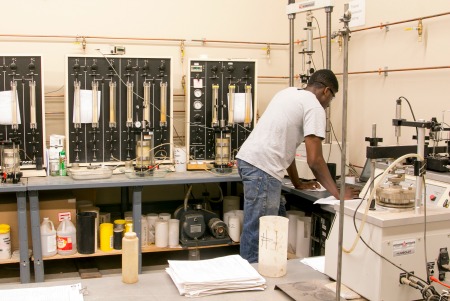Ask someone in our industry if it’s important for a laboratory or another service provider to be accredited, and you’ll probably get a quick “yes” and maybe an “absolutely!” This is especially true for those who require documentation from a third party stating that their materials or processes comply with a known standard. But not everyone pays attention to accreditation. It’s easy to overlook, or even to assume that every provider carries the same performance credentials.
At its most basic level, accreditation indicates that the entity has achieved an appropriate level of organizational proficiency, and has reliable mechanisms in place to continually control the quality of service it delivers.
Being accredited isn’t just an excuse to tout another fancy acronym! Developing an effective quality program, after all, carries a cost and includes an organization-wide culture change. Accreditation also carries the burden of identifying when any portion of the quality system was out of specification, and informing the client of the deviation. Nevertheless, accreditation provides definite benefits to both the end user and the accredited organization.
Benefits of being served by an accredited organization
Accreditation provides assurance that the service quality you receive will meet or exceed national or international standards. An active program also identifies when a system or process is indeed out of the tolerances prescribed by the pertinent specification. In fact, you should expect a higher level of service quality in all accredited organizations or programs.
When working with an accredited organization, you can be confident that the appropriate protections for up-to-date procedures and calibrated equipment, privacy, staff competence and supervision, handling of complaints, and physical safety are in place. You can also expect mechanisms for accountability, as well as a formal quality improvement process.
For example, at AET, we have an operating Quality Management System (QMS) that complies with the requirements of ISO/IEC Standard 17025 General Requirements for the Competence of Testing and Calibration Laboratories. Our materials testing laboratory is accredited by the AASHTO Materials Reference Laboratory. Assessments are conducted according to the AASHTO R18 standard. By adhering to our QMS, we also remain in compliance with applicable ASTM standards. And, as part of our QMS, a third-party assessor looks at personnel, procedures, equipment, calibrations and materials and evaluates our QMS on a regular basis.
AET laboratory services are “governed” by our QMS, which ultimately serves to keep our accreditations intact. This, of course, is great news for you; however, accreditation provides benefits for the accredited organization as well.
Benefits to the accredited organization
Accreditation gives our professionals confidence that we are providing our clients with high-quality services, with built-in mechanisms for self-policing and making improvements that will make it possible to achieve accurate and repeatable results. It also increases our organization’s ability to make informed decisions, reduce costs, and manage risk—all of which can translate to a competitive advantage.
Although these benefits aren’t as tangible, they are certainly just as valuable. In many instances, accreditation strengthens an organization’s culture, improves staff morale, and contributes to good staff-management relations. It provides an industry baseline for how the organization should function, and it can boost efficiency and accountability.
Accreditation may even reduce the number—and seriousness—of complaints and incidents from both clients and staff. In other words, understanding and controlling the critical nature of the process results in fewer headaches.
It’s worth a second look
If you’re hiring a service provider or contractor, don’t shy away from asking about their accreditation(s). Most will be happy you are interested and will gladly share the details. The benefits of accreditation, after all, extend not only to our clients and our organization, but also to the project owner and end users.



